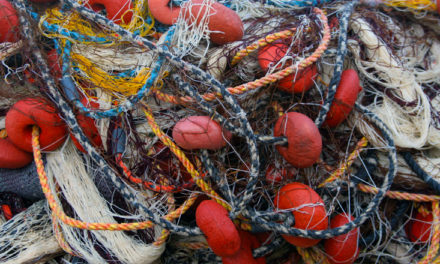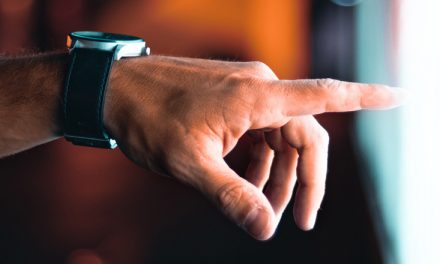Half The Sky
Tena tātou katoa e te iwi mīhana… (Greetings to all the people in mission),
This month’s whakataukī (proverb) is: “Me aro koe ki te hā o Hine-ahu-one.” (Pay heed to the dignity and power of women). On this issue, Maori language champion Stacey Morrison states,
Balance between genders is a strong foundation of Māoritanga (Māori ways), and this symmetry is seen in many aspects of our culture. For instance, women perform karanga—the call of welcome at a pōwhiri (formal greeting ceremony) before men speak in whaikōrero (formal oratory). Both forms of communication carry great mana (authority) and add commentary and insight to the hui (customary gathering). I’ve heard people complain that they see aspects of the pōwhiri as sexist, mostly because men sit in the front row when they speak and women sit to their side or behind. But I’d ask those people to consider what they may have missed before the hui got to that point—the narrative wrapped within the karanga, the fact that women lead the ope (the group of people) on to the marae (ceremonial meeting place)—and that it’s a Western world view that the front row is the VIP section. That’s not how Māori view it at all.
I have just completed a month-long series of meetings, in Albania (with Interserve’s international leaders), UK (with various missions training providers and other leaders), Thailand (with 450+ Asian leaders focused on issues of Church and mission), and Australia (South Pacific Member Care Network Conference). In every single one of these locations about 80% of my time was spent conversing with women carrying leadership responsibilities in missions.
80% of my time was spent conversing with women carrying leadership responsibilities in missions.
On the one hand, it is wonderful to know that there are so many women carrying leadership responsibilities in missions; on the other hand, most of the conversations revolved around frustrations they are experiencing in trying to contribute their best and fulfil their responsibilities. Sadly, in a few cases, I listened to and grieved their experiences—of overt dishonour from men they were appointed to lead, lack of due recognition by the organisation compared to that given to male colleagues, lack of backing for their vision, failure to provide the resources required to fulfil their roles (where it was provided to or demanded by male leaders), and, yes, even sexual offences.
I have started to process with my executive coach (a woman) why I might have experienced this degree of appropriate cross-gender fellowship compared to meeting with men. I certainly did not consciously set out to converse with so many women, few of my meetings on this trip were pre-set appointments. One conclusion so far is that I was simply available, approachable and neutral. Available because on this trip I had no formal responsibilities. I was just a learner-participant in support of the events. So I had plenty of time to linger at meals and breaks, and, for whatever reason, I was approached. No doubt my leadership positions with the WEA and past writings/presentations provided a degree of recognition. But my coach also suggested that I may present myself as approachable—something like, “ego-lite”.
I was bred in a strongly matriarchal extended family, taught the stuff of life by strong women.
She suggested that some women tend to have an intuitive sense of heightened ego and avoid it. I’m sure I have an ego as big as the next man, but perhaps my upbringing has helped me tune it such that it is less threatening to women. I was bred in a strongly matriarchal extended family, taught the stuff of life by strong women. My tribe has a rich mythos of women leaders in our lineage too, including high-born chieftess Rongomaiwahine who our namesake chief, Kahungunu won over in epic style; with their son, Kahukuranui becoming the father of our line.
Regardless the reasons why, I count it a privilege to be able to encourage the women I meet who are seeking to serve God with their gifts and talents to further God’s global purposes. Mao Tse Tung is quoted as saying that “women hold up half the sky”. In the context of his Marxist ideology, it is a safe bet he was thinking in terms of women being a valuable economic resource toward greater production. That is not what is foremost in my mind when I think of the collaborative relationship that men and women share in God’s oikonomos (economy).
In the Biblical perspective, humans are not valued for their labour or contribution towards the end goal of production. We are precious because we are made in the image of God. Every one of us.
In the Biblical perspective, humans are not valued for their labour or contribution towards the end goal of production. We are precious because we are made in the image of God. Every one of us. Regardless of race, religion or rank in society. The starting point for any theology of humanity, gender, or the mission of God for that matter, must acknowledge the imago Dei. We are, without exception, people who God loves.
I develop this more, and defend my egalitarian reading of Scripture, in one of the concluding chapters of the book Co-Leaders and Co-Workers (Amanda Jackson & Peirong Lin, eds) published by WEA. That book is available as a free PDF download from the WEA Women’s Commission site.
I still see my primary role in God’s mission as a mobiliser, and I am convinced that if we do not pay heed to the dignity and power of women as those who ‘hold up half the sky’, God’s mission will be seriously hindered for lack of talent, expertise, insight, character, vision, ethos, and relationality. The missions community must be a safe space for women to flourish in leadership as, together, we #stayonmission.
Arohanui ki a koutou e haere ana ki te ao (love to you all as you go into the world),
Jay







